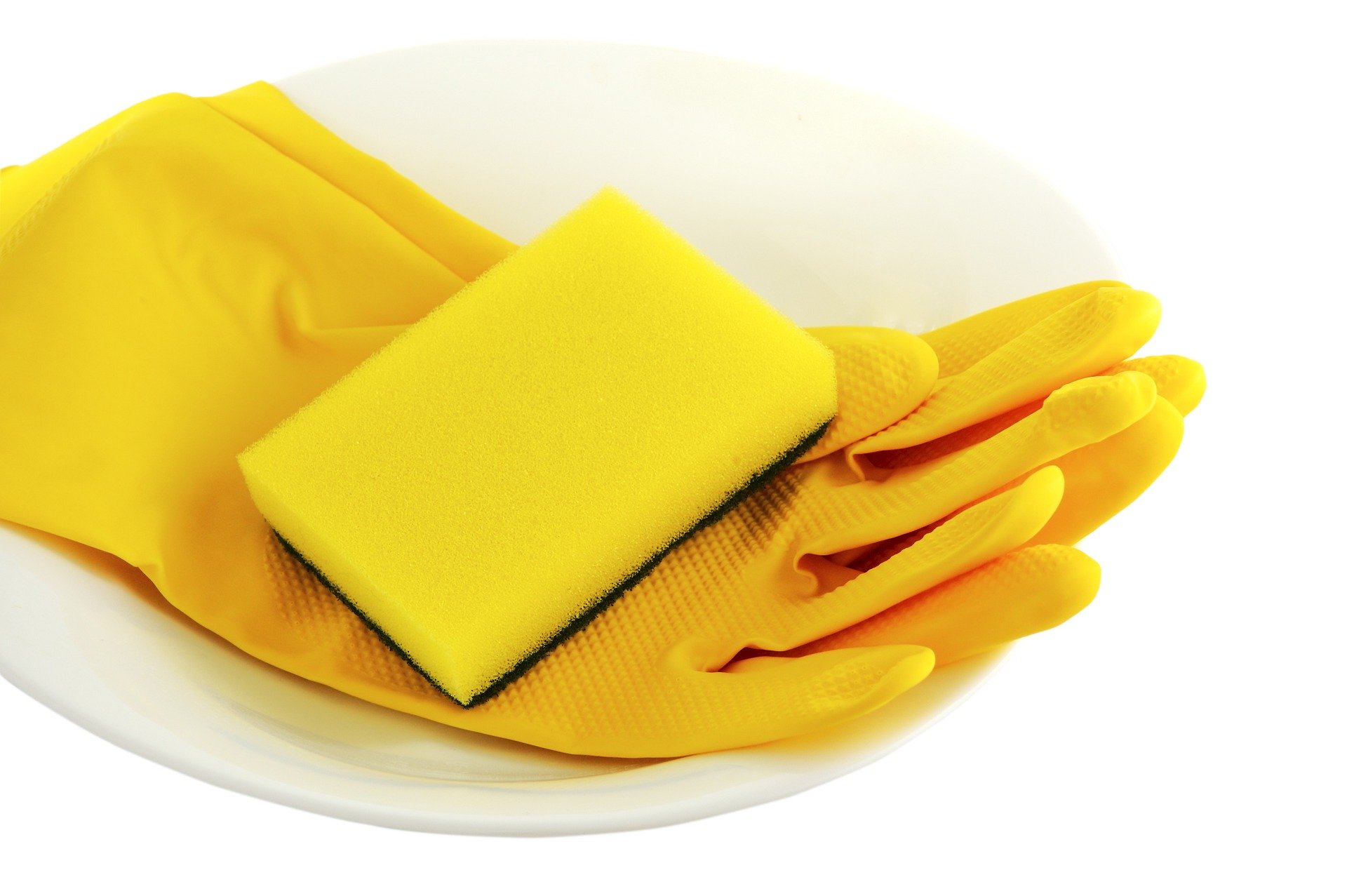Backup Cleaning Teams Ready & Tips For Your Own Home Sanitizing

As the pandemic progresses, we are all “In It Together” more than ever before. At Avenue Living, we are home to 20,000 people across the Prairies and we employ hundreds of team members. We are taking extra measures to sanitize all of our Communities. And we have some very detailed house cleaning guidelines that you can put into action today.
There is still much to learn about what causes coronavirus disease 2019 (COVID-19). Based on what is currently known, person-to-person virus spread happens most frequently among close contacts, within about six feet. This type of transmission occurs via respiratory droplets. Transmission of novel coronavirus to persons from surfaces contaminated with the virus has not been documented, but current evidence suggests that novel coronavirus may remain viable for quite some time, from hours to days, on surfaces made from a variety of materials. Cleaning of visibly dirty surfaces, followed by disinfection, is a best practice measure for prevention of COVID-19 and other viral respiratory illnesses in community settings.
With the Public Health Agency of Canada recommending increased cleaning as one of the most important preventative measures in the fight against COVID-19, we want to let you know that we have multiple backup cleaners at the ready in every one of our 19 centres, should any of our regular cleaning teams need to take time off due to illness or quarantine.
We also want to tell you about an EPA-registered disinfectant we are using in our buildings. Certified by the Environmental Protection Agency in the United States as non-toxic to human beings, EnviroShield Disinfecting Spray System offers an extra edge when it comes to safeguarding against COVID-19. With a special spray nozzle that adds an electrostatic charge to the solution during application, the disinfecting spray surrounds and clings to the surfaces it touches, killing harmful bacteria. We have increased our level of this disinfectant at all of our properties and offices. Additionally, our cleaners are spending more time sanitizing high-level touch points like door handles, elevator buttons, light switches and intercom buttons.
Please be assured, we are continually adapting our processes in accordance with the latest health guidelines. If you have any questions or concerns, please contact us at COVID-19@avenueliving.ca.
There are also actions you can take to safeguard your own home. Please read on for guidelines from our hazmat-certified cleaning team in Calgary, Calgary Trusted Cleaners.
Surfaces
If surfaces are dirty, they should be cleaned using a detergent or soap and water prior to disinfection.
For disinfection, diluted household bleach solutions, alcohol solutions with at least 70% alcohol, and most common EPA-registered household disinfectants should be effective.
Diluted household bleach solutions can be used if appropriate for the surface. Follow manufacturer’s instructions for application and proper ventilation. Check to ensure the product is not past its expiration date. Never mix household bleach with ammonia or any other cleanser. Unexpired household bleach will be effective against coronaviruses when properly diluted.
Prepare a bleach solution by mixing:
- 5 tablespoons (1/3rd cup) bleach per gallon of water OR
- 4 teaspoons bleach per quart of water
- For soft (porous) surfaces such as carpeted floor, rugs, and drapes, remove visible contamination if present and clean with appropriate cleaners indicated for use on these surfaces. After cleaning:
- If the items can be laundered, launder items in accordance with the manufacturer’s instructions using the warmest appropriate water setting for the items and then dry items completely.
Linens, Clothing, and Other Items That Go in the Laundry:
- Do not shake dirty laundry; this minimize the possibility of dispersing virus through the air.
- Wash items as appropriate in accordance with the manufacturer’s instructions. If possible, launder items using the warmest appropriate water setting for the items and dry items completely. Dirty laundry that has been in contact with an ill person can be washed with other people’s items.
- Clean and disinfect hampers or other carts for transporting laundry according to guidance above for hard or soft surfaces.
Personal Protective Equipment (PPE) and Hand Hygiene:
- You should wear disposable gloves and gowns for all tasks in the cleaning process, including handling trash.
- Gloves and gowns should be compatible with the disinfectant products being used.
- Additional PPE might be required based on the cleaning/disinfectant products being used and whether there is a risk of splash.
- Gloves and gowns should be removed carefully to avoid contamination of the wearer and the surrounding area. Be sure to clean hands after removing gloves.
- Gloves should be removed after cleaning a room or area occupied by ill persons. Clean hands immediately after gloves are removed.
- Cleaning staff should immediately report breaches in PPE (e.g., tear in gloves) or any potential exposures to their supervisor.
- Cleaning staff and others should clean hands often, including immediately after removing gloves and after contact with an ill person, by washing hands with soap and water for 20 seconds. If soap and water are not available and hands are not visibly dirty, an alcohol-based hand sanitizer that contains 60%-95% alcohol may be used. However, if hands are visibly dirty, always wash hands with soap and water.
- Follow normal preventive actions while at work and home, including cleaning hands and avoiding touching eyes, nose, or mouth with unwashed hands.
- Additional key times to clean hands include:
- After blowing one’s nose, coughing, or sneezing
- After using the restroom
- Before eating or preparing food
- After contact with animals or pets
- Before and after providing routine care for another person who needs assistance (e.g., a child)
Cleaning Products That Destroy Coronavirus
- Soap and Water
Just the friction from scrubbing with soap and water can break the coronavirus’s protective envelope. “Scrub like you’ve got sticky stuff on the surface and you really need to get it off,” says Richard Sachleben, an organic chemist and member of the American Chemical Society. Discard the towel or leave it in a bowl of soapy water for a while to destroy any virus particles that may have survived.
- Bleach
The Centers for Disease Control and Prevention recommends a diluted bleach solution (⅓ cup bleach per 1 gallon of water or 4 teaspoons bleach per 1 quart of water) for virus disinfection. Wear gloves while using bleach, and never mix it with anything except water. (The only exception is when doing laundry with detergent.)
- Isopropyl Alcohol
Alcohol solutions with at least 70 percent alcohol are effective against coronavirus. Do not dilute the alcohol solution. Alcohol is generally safe for all surfaces but can discolor some plastics.
- Hydrogen Peroxide
According to the CDC, household (3 percent) hydrogen peroxide is effective in deactivating rhinovirus, the virus that causes the common cold, within 6 to 8 minutes of exposure. Rhinovirus is more difficult to destroy than coronaviruses, so hydrogen peroxide should be able to break down coronavirus in less time. Pour it undiluted into a spray bottle and spray it on the surface to be cleaned, but let it sit on the surface for several minutes.
Hydrogen peroxide is not corrosive, so it’s okay to use it on metal surfaces. But similar to bleach, it can dis-colour fabrics if you accidentally get in on your clothes.


